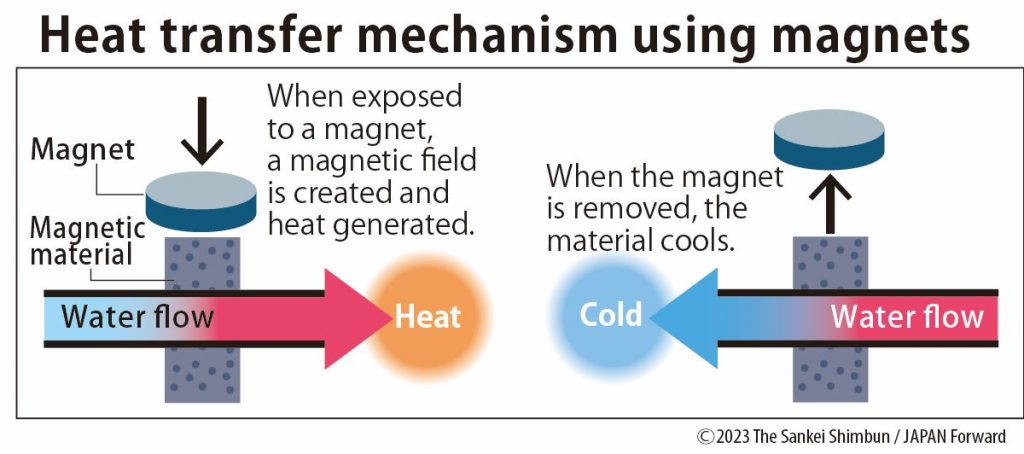
Sample of a heating unit that uses natural refrigerant developed by Panasonic. In Paris, France, October 2022 (© Sankei by Hiroto Kuwajima).
The global movement toward decarbonization is accelerating. Japanese air conditioning manufacturers are hurrying to develop low-carbon heating and cooling technologies with reduced environmental impacts.
Daikin Industries, Ltd. is moving ahead with the development of technology utilizing the magnetocaloric effect (MCE). This technology uses magnetic force to generate temperature changes. The company aims to determine the technology's feasibility for magnetic air conditioning equipment by 2024.
Meanwhile, Panasonic Holdings will launch a heating system in May 2023. The new system utilizes a natural refrigerant with less impact on global warming.
Are Magnetic Air Conditioners Feasible?
Daikin's ongoing research is on utilizing the properties of magnetic material. When exposed to magnets, heat is generated in magnetic material. Likewise, temperature decreases when the magnets are removed. The heat and cold air generated by temperature changes in the magnetic material is transferred to water. Then it can be used for refrigeration, freezing, and air conditioning.

Issues remain in putting the technology into practical use. The size of the magnet required is expected to be large, resulting in high manufacturing costs. However, development of a high-performance magnetic material for heating/cooling units would mean roughly 20% energy savings compared to conventional models.
Continue reading the full story on Japan 2 Earth.
And find more great articles on the environment and the challenges of achieving the SDGs on our new website Japan 2 Earth (J2E), sparking a transition to the future.
RELATED:
- Decarbonization is the Message from Leading Japanese Manufacturers at CES
- Carbon Neutrality and Branding: Why Companies Are Eager to Get Involved
(Read the article in Japanese.)
Author: Hiroto Kuwajima






